Have baby boomers stolen the family silver?
- Published
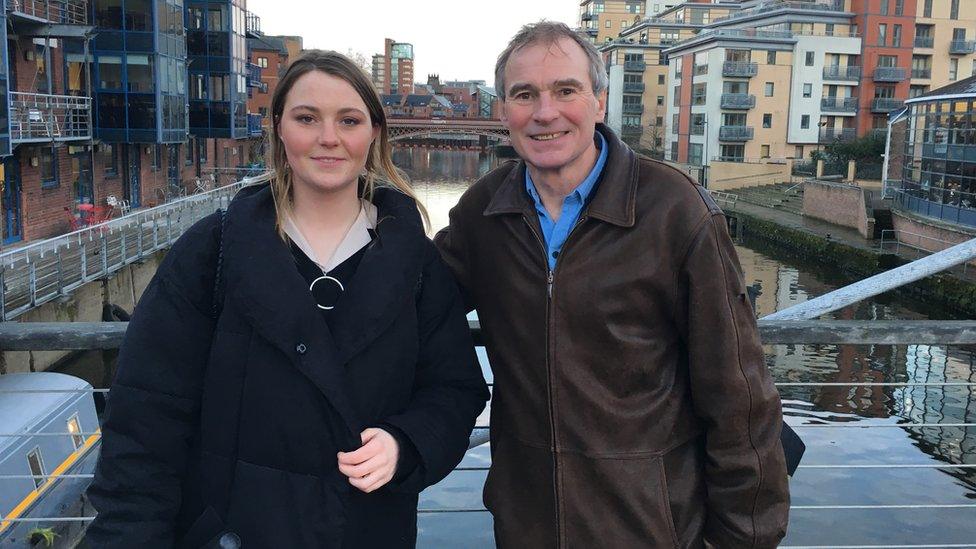
Millennial daughter and baby boomer father, Claudia and Ian Wells
We take it for granted that our children will be better off than us but the so-called millennials - anyone born in the 1980s or 1990s - could become the first generation to earn less than their parents.
And are those parents, mostly baby boomers who benefited from economic good times, tax cuts and free higher education to blame?
The figures
Baby boomers, people born between 1946 and 1965, will on average earn £740,000 during their lives, according to the Resolution Foundation.
Generation X, those now aged between 35 and 50, are projected to earn 13% more than that - £835,000 on average.
But the figure for millennials, the under-35s, is lower than that - they are forecast to earn £825,000 over their working lives.
'Stagnation Generation'
Laura Gardiner, author of the Resolution Foundation's report Stagnation Generation, external found a range of reasons for the dismal outlook for millennials.
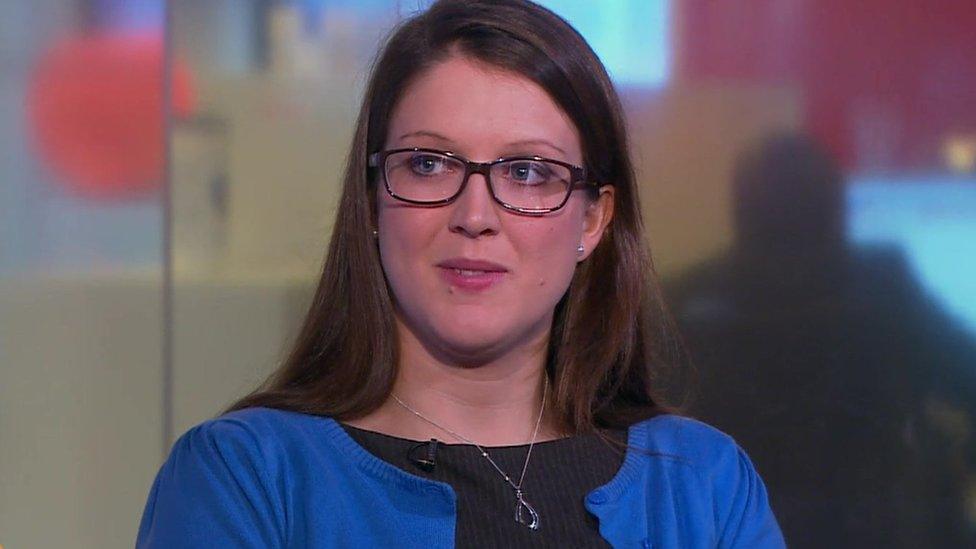
Millennial Laura Gardiner says that her generation has been particularly hard hit by the financial crisis
Laura, a millennial herself, says the timing of the financial crisis was particularly bad for her generation. "This pay squeeze in particular hit millennials just at the point you expect your pay to be rising most quickly, in your early twenties," she says.
There's still a chance that millennials' lifetime earnings could outstrip those of their parents because they are likely to live longer and work longer, Laura says.
She adds, however, that the slowdown in productivity growth (which affects national income) and the rise of insecure or precarious work, such as zero-hours contracts, self employment and short-term contracts, could prove so devastating that millennials would still earn less than their parents.
Father and daughter Ian and Claudia discuss their financial prospects
Claudia Wells, who is 24, graduated from university in 2015 and since then has had a series of temporary and short-term contracts, the most recent of which has taken her to France. "In today's market," she says, "finding a job can be hard."
Claudia also faces other financial burdens compared with her baby boomer father Ian. As soon as she starts earning more than £21,000 she will have to start paying off more than £40,000 of student debt.
Ian compares his daughter's circumstances with his own: "At 23 I was in a secure, big company job with a good pension scheme, I had bought my first modest house and I was paying off a mortgage, not student debt."
The housing divide
"I live in a shared house and the idea of me or any of my friends owning a house by ourselves is pretty unforeseeable," Claudia says.

Housing supply has failed to meet demand - another problem facing millennials
In fact, by the age of 30, Claudia's generation are 50% less likely to own their own homes than their baby boomer parents. Almost two-thirds of Ian's generation were homeowners by the same age.
Part of the problem is that supply has failed to keep up with demand for housing as the population has grown.
And Angus Hanton, co-founder of the Intergenerational Foundation, which exists to promote fairness between the generations, believes that older people are hogging the housing that is available.
"Partly," he says, "because they are living longer and partly because there aren't suitable places to downsize to, but they are taking more than their share."
This matters for Claudia's generation because property remains the single biggest asset owned by people in the UK and is a valuable source of wealth and, potentially, rental income in later life.
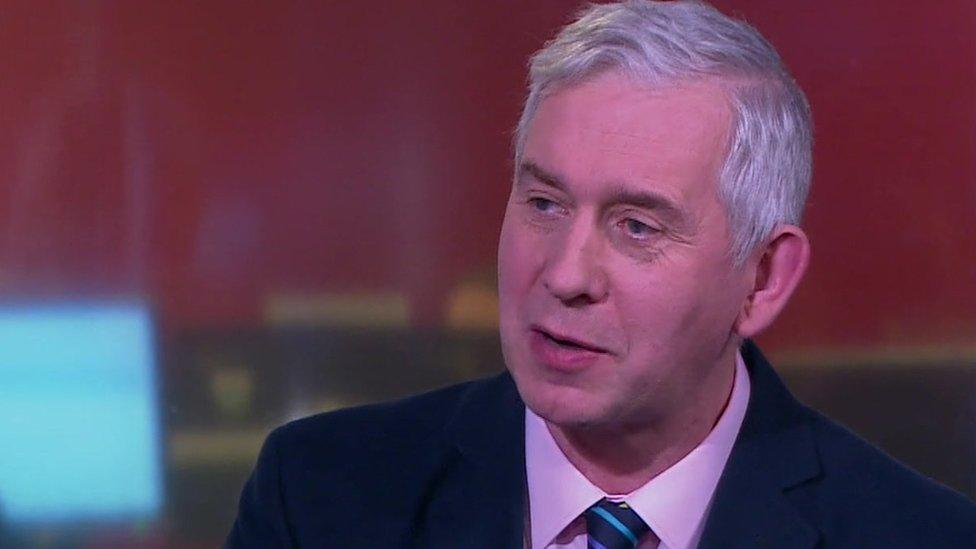
Angus Hanton, a baby boomer himself, says his generation is taking "more than their share"
Ian and his wife own their home outright and receive rental income from properties overseas that will supplement his already generous defined benefits pension and large savings pot, should he choose to retire.
An uncomfortable retirement
For "generation rent" - as millennials are also known - their retirement prospects look a lot bleaker. Not only are they more likely to forego income and wealth from owning property, they also face much higher pension costs.
And, despite the start of auto-enrolment into company pension schemes, the shift towards defined contribution pensions and the rise in self-employment (excluded from auto-enrolment) could dramatically reduce millennials' retirement income.
The state is often seen as the arbiter of fairness between generations. But, there is evidence that government policy itself may have widened the intergenerational divide.
Prof Sir John Hills of the London School of Economics found that baby boomers, external were, on average, net beneficiaries of the welfare state - they will get more in benefits than they have paid in tax. They have enjoyed tax cuts and a boom in welfare spending. Subsequent generations, by contrast, are likely to be net contributors over their lifetimes and get back less than they have paid in, thanks to austerity cuts to state benefits.
The grey vote
"The older generation have more voting power... they lobby more, the MPs and the policy makers are more likely to be baby boomers so [young people's] interests tend to be treated as less important," says Angus Hanton.
So government decisions to protect the state pensions with a "triple lock" guaranteeing an annual rise of at least 2.5%, at a time when other working-age benefits are being cut, has added to the controversy over intergenerational fairness.
"In the UK we have a huge number of pensioners who are wealthy, probably two million over-60s who live in households with more than a million pounds' worth of assets," adds Angus. "It seems odd that they should be getting this handout of the state pension."
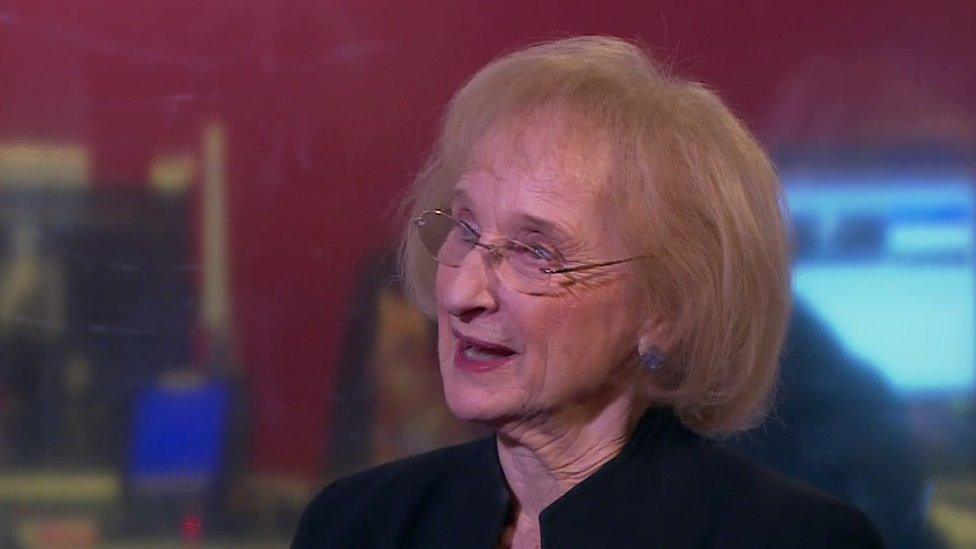
Baroness Greengross, who is from the "silent" inter-war generation, doesn't believe parents are at war with their children
Not everyone, however, puts the blame quite so squarely on the shoulders of the baby boomers.
"I would dispute the fact that the generations are at war," says Baroness Greengross, president of the Pensions Policy Institute. "The older generation has no desire to fight the younger generation... these are their children and grandchildren."
There is evidence that, in some countries at least, state level transfers of wealth from the young are, to some extent, offset by private transfers from old to young within families.
And, Ian admits that, like most parents, he is setting aside money to help Claudia get on to the housing ladder.
Talking Business: Generations at War will be broadcast on BBC World News at 15:30 GMT on Friday, 13 January and on the BBC News Channel at 20:30 GMT on Saturday, 14 January.
- Published18 July 2016
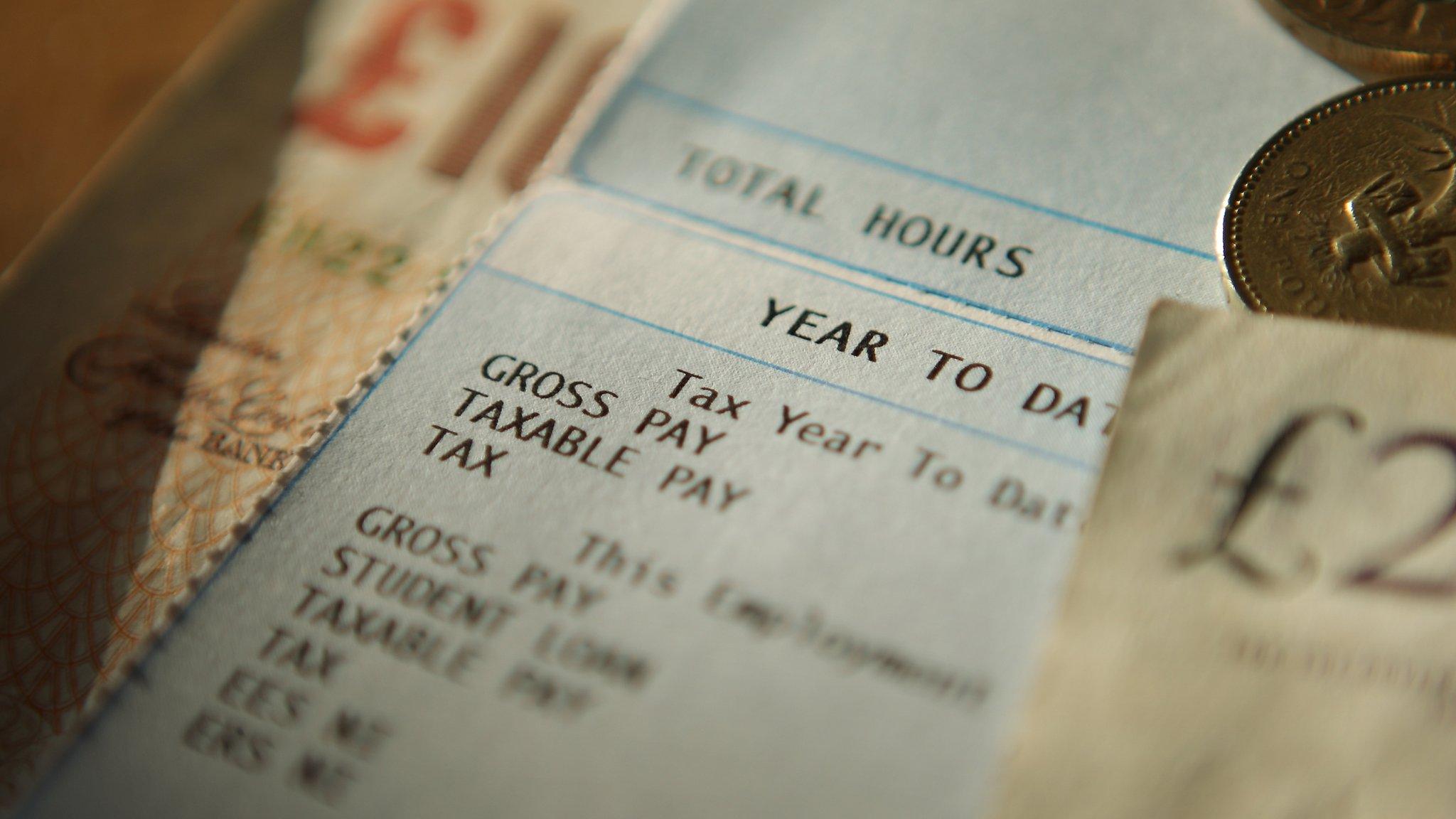
- Published9 March 2016
